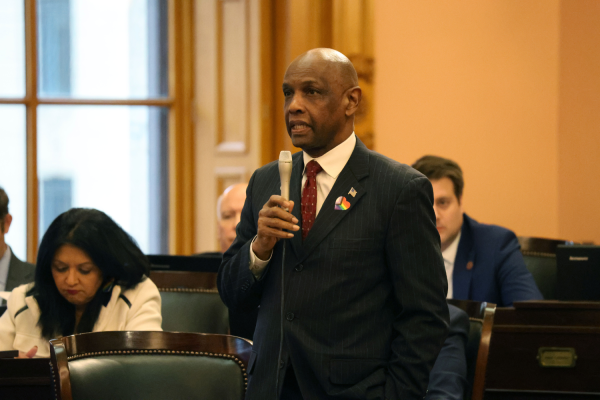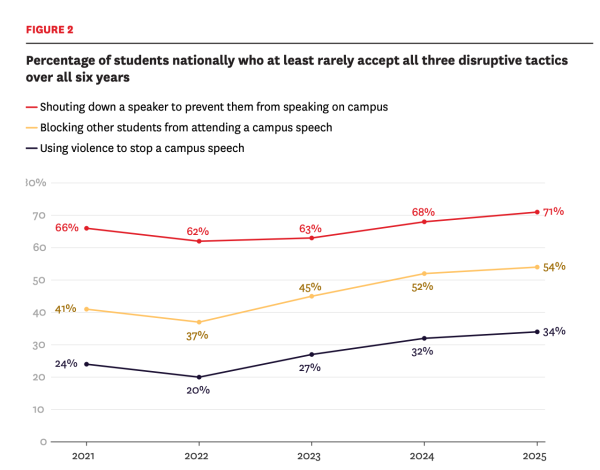Trans Ohioans are still being denied gender marker corrections to their birth certificates
It is unconstitutional to deny transgender Ohioans corrections to the gender markers on their birth certificates. Some judges are denying them anyway.
Editor’s note: This article was originally published by The Buckeye Flame.
On December 16, 2020, a Federal District Court ruled that it is unconstitutional to deny transgender people the ability to correct the gender markers on their birth certificates.
At the time, Ohio was one of just two states that still refused to grant trans people those corrections.
Now, more than two years later, probate court judges in Ohio’s more rural and conservative counties are still denying gender marker birth certificate corrections to trans Ohioans based on their individual interpretations of the ruling.
“The current situation in Ohio is nothing short of a constitutional crisis,” said James Knapp — an Ohio-based LGBTQ+ activist, attorney and chair of the board of directors at TransOhio.
Thankfully, Knapp also said trans Ohioans don’t have to navigate this crisis alone.
Creating a new process for trans Ohioans
For years, Knapp and other LGBTQ+ advocates and organizations across Ohio lobbied the Ohio Department of Health to implement an official process for correcting the gender markers on transgender people’s birth certificates.
“For a long time, ODH has been saying no,” Knapp said. He said that refusal is what led to the lawsuit filed by the American Civil Liberties Union of Ohio in 2018.
After the case was settled in 2020, ODH created an official process for correcting gender markers on birth certificates via Ohio’s probate judges — like any other routine birth certificate correction.
“The Supreme Court of Ohio issued its own model probate [birth certificate correction] form, and each of Ohio’s 88 probate courts are supposed to accept it,” Knapp said. “So far, 27 of them have refused to do so.”
“They’re saying that even if they wanted to grant birth certificate corrections, they don’t have the authority to do so,” he added. “We have a lawsuit that states otherwise.”
Ohio’s probate court judges still deny gender marker corrections
In order to correct the gender markers on their birth certificates, trans Ohioans must first obtain a court ordered correction of their birth record. Then, that order goes in front of a probate court judge.
In 2022 in Clark County, OH — a conservative county with a population of about 135,000 — a transgender woman submitted all the necessary paperwork for a gender marker birth certificate correction via Clark County Probate Court.
“Under probate court where she lived, she submitted everything she needed,” said Knapp, but her request was denied based solely on the judge’s transphobic interpretation of the word ‘correct’ as it refers to gender or gender identity.
In another instance, a Mahoning County Probate Court judge explicitly noted that he chose to deny a transgender woman’s request to change her gender marker on her birth certificate because he did not interpret the gender marker change as a ‘correction.’
Now, the Supreme Court of Ohio and other courts are using that case as precedent.
“Stark County no longer grants [birth certificate gender marker corrections],” Knapp said. “They say they might not have the authority.”
Trans Ohioans still have options
Knapp, a longtime resident of Northeast Ohio, said the recent treatment of trans people in courtrooms across the state is alarming and has been difficult to witness.
“The Ohio Name Change Legal Clinic has seen an uptick in [reports of] judges who are following transphobic lines of questioning during simple name changes,” he added. “This is exclusively impacting transgender people. That’s the worst part about this.”
In places like Franklin County and Cuyahoga County, probate court judges often grant gender marker corrections on birth certificates for trans people without issue.
In more rural, conservative counties — where trans Ohioans run the risk of encountering a probate court judge who would deny their requests based on transphobic ideas about gender — Knapp said trans Ohioans do still have options.
For instance, a trans person must be able to prove they’ve lived in that county for at least 60 days in order to file for gender marker birth certificate correction via probate court, but they may also be able to file in the county where they were born.
If both of those counties are more rural or conservative, trans people looking to correct their birth certificates can also file in the county where their gestational parent lived while pregnant.
That change of venue could allow many trans Ohioans to take their case to a more liberal court in a more liberal county.
Where to find legal help
TransOhio — along with Equality Ohio, Equitas Health and the Ohio Name Change Legal Clinic— offer free resources and legal clinics to help trans Ohioans navigate both name changes and birth certificate corrections.
“If you’re denied, you only have a short period of time to appeal,” Knapp said. “So please reach out immediately, because we can help.”
The ACLU of Ohio also maintains a detailed walkthrough of the entire gender marker birth certificate correction process.
Knapp said the road ahead is still wrought with legal obstacles for trans Ohioans, but he isn’t without hope.
“I want trans folks to brace themselves for another onslaught of anti-trans legislation,” he said. “But know that we’re going to win. [Know] that this is unconstitutional, and we’re going to come out on top.”
The Buckeye Flame is a platform dedicated to amplifying the voices of LGBTQ+ Ohioans to support community and civic empowerment through the creation of engaging content that chronicles their triumphs, struggles and lived experiences. Its Editor is Baldwin Wallace University professor Ken Schneck. Visit thebuckeyeflame.com.
The Exponent is looking for financial contributions to support our staff and our newsroom in producing high-quality, well-reported and accurate journalism. Thank you for taking the time to consider supporting our student journalists.






































